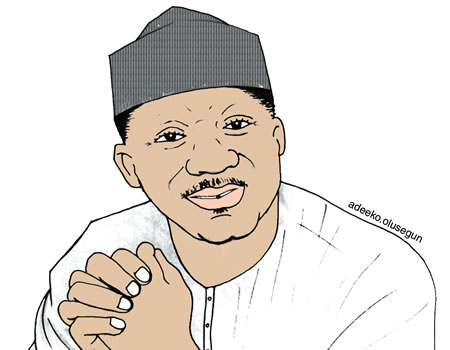THE story of how we lost our values as a society is not peculiar to Ekiti. And, in reality, losing our values as a society was not peculiar to Ekiti. And, in reality, losing out societal values and orientation was a gradual process. The big straw, however, that led to the death of our values came in the guise of Udoji Salary Awards in the mid-70s. Before Udoji, agriculture and trade thrived, especially in the South-West, and Ekiti was a formidable part of Nigeria’s economic pillars, particularly noted for cocoa, kolanuts and other cash crops. It was also a major producer and supplier of yams to other areas of the country. Then, we had this blissful life where our friends who could not leave the villages to continue their education were doing well with agriculture and trade. And because they were doing well with enough cash at hand always, there was no issue of complex. We socialised happily together when we came home, particularly for December holidays. Palm wine was at the centre stage of social gatherings, at club meetings and even marriages.
We joined them to form groups while going to farms. You hardly could notice signs of poverty, greed, or scandalous chase for wealth. And with a bang, Udoji salary awards came, distorting the socio-economic balance of the villages which produced wealth for the cities. Udoji was a scandal that we now believe, rightly or wrongly, was targeted against South West’s economic growth and power. It came with a policy that enriched even newly employed, such that those on the civil service employment ladder for just six months came home with motorcycles. Our young farmers at home fled the villages in search of jobs as gardeners, gatemen, etc, in the ministries. There was a huge gap of a generation to take over agriculture from our fathers and mothers. Then Values changed, palm wine became outdated, native dresses were replaced with shirts, trousers and fashions from the cities, all these along with new habits and living styles. So, Udoji not only destroyed our economy but our orientations, values and societal pillars.
Ekiti, as an environment, suffered most for this. The villages were deserted, the crops went off and our new, sociable young ones came home with new cultures and values. Adultery became the order of the day, particularly in December. The seven pillars of societal values, respect, honesty, family integrity, community integrity, responsibility, service, justice and fairness, all of which Ekiti was known for, were thrown to the winds. The story here is that our value system is the sum total of our background, our ideas and beliefs. It shapes the opinion we hold about life. Every family or community had rules or expectations of what each member should hold or should not do. Although we might not have had high expectations, we still lived with by these in order to preserve family and community integrity. Fear of going astray ruled us. One key area of our value system that was eroded by the dynamism of the social life that followed Udoji, with particular reference to Ekiti, was good neighborliness. Good neighborliness was on based on common values that we experienced every day. This dictated those who share our interests and morals. We avoided those who did not share our value systems, morals or manners to protect our family or community integrity but lived with and protected relationships with those whose values were substantially similar to ours in the areas of good manners, interests and goals.
Generally, today, our cities and villages are in the hands of youths who have no idea of values and morals to build a sane society. Go to Ibadan, Abeokuta, Akure, Ado-Ekiti, Osogbo. In 2018, yahoo boys under the age of 20 staged street protests on the streets of Ondo town over police harassment. But in the throes of the woes we found ourselves, there is a ray of hope in what Governor Kayode Fayemi is currently doing towards value orientation in Ekiti. It is a ray of hope for the South-West, basically as a result of spiral effects. Shortly before the elections that returned Governor Fayemi for a second term, I was doing a network research in Ekiti during which I came face to face with a desecrated society, arising from the body language, lifestyle and limited intelligence of the government of the day. Many friends I met literarily wept about the situation, wondering if the environment was actually the Ekiti we grew up in. Scandalous lifestyles were evident everywhere— schools, clubs, hotels even religious gatherings. This is why majority of us of this generation are being re-assured by Fayemi’s focus on value orientation as a major project. First, it was his body language, and things are already falling in place with Ekiti value system. But with value orientation taking off as a prioritized project, Fayemi is taking the bull by the horns
There is a need for caution; value orientation in the current disorganised society should be approached as an effort towards a stabilised future. It is a new solid foundation for the future, for which the governor will be remembered, upon successful germination. This is important as a focus to return Ekiti to its place of pride and integrity. Once upon a time in Ekiti, our value systems dictated and set the pace for development, educational advancement and economic growth, as families and communities. You took pride in these goals at family and community levels. This is the relevance to Fayemi’s value orientation project. A society without acceptable values has no direction, but the one acknowledged for good orientation opens itself to rapid economic growth and acceptability. No doubt, it is a herculean task, but who says we cannot achieve a better society for our children to inherit. Those who dare positively live in the minds of the people, and also leave structural legacies. With determination, good results will come and, for sure, other states will take a cue from Fayemi for spearheading Value Orientation as a project.
- Ige is a media and management consultant based in Ibadan
WATCH TOP VIDEOS FROM NIGERIAN TRIBUNE TV
- Let’s Talk About SELF-AWARENESS
- Is Your Confidence Mistaken for Pride? Let’s talk about it
- Is Etiquette About Perfection…Or Just Not Being Rude?
- Top Psychologist Reveal 3 Signs You’re Struggling With Imposter Syndrome
- Do You Pick Up Work-Related Calls at Midnight or Never? Let’s Talk About Boundaries







